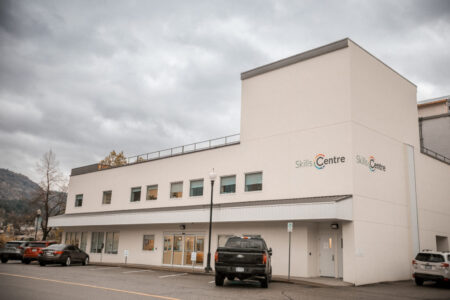Car crashes up? Not so fast
It’s here somewhere.
Licence, car registration fees to drop 35 per cent in 2016. No, that’s Quebec.
Average passenger vehicle owner would pay an additional $17 a year in premiums. Nope, that’s Manitoba.
Auto Fund rate stabilization reserve hits $377 million – highest ever, $65 million profit in 2015. No, that’s Saskatchewan.
Here it is: ICBC applying for basic rate increase of 4.9 per cent.
Vastly different story lines among Canada’s four public auto insurers.
Just like ICBC’s mishmash of eight different date-to-date comparisons in its news release last week in support of the corporation’s rate application.
Cherry picked to suit, actual dollars cited when useful, percentages when not, but no ratios since they wouldn’t be helpful at all.
There’s an eerie sense of déjà vu to the release.
Example: “The external pressures on insurance rates in B.C. are very real and they’re accelerating, including an escalation in the number of crashes, the number of claims being filed and the cost of settling those claims.
Here’s what ICBC said in 2002 to justify its then rate application: “Claims costs are up, with no sign of relief to come…These trends show no sign of abating.”
According to its release, the number of crashes across B.C. “jumped by 15 per cent in two years from 260,000 in 2013 to 300,000 in 2015.”
Why 2013 and not some other year, say 2007? The numbers wouldn’t fit the narrative.
In 2007, there were 281,000 crashes, reducing the jump to 6.8 per cent over nine years, but that’s just part of it.
Back then there were three million active driver licences in B.C. In 2014, 3.28 million (latest year posted to ICBC’s website).
Take the number of crashes per 100,000 active driver licenses and that jump turns to a drop, falling from 9,341 crashes for every 100,000 licenses to 9,146 in 2015 (using the undoubtedly lower 2014 license stat).
Against policies in force – up 25 per cent since 2007 – the ratio would drop even more.
They dip for injuries and fatalities as well.
According to Transport Canada, there were 13.9 fatalities per 100,000 licensed drivers in B.C. in 2007 and 8.9 in 2014. The injury rate dropped from 864.2 to 644.7.
When it comes to cost controls, ICBC was quite emphatic in 2002: “ICBC has reduced its controllable costs by 22 per cent and has reduced its costs substantially, so further savings will be much smaller.”
No kidding.
Last week, ICBC trumpeted the fact that its “executive team has decreased from 11 members in 2012 to just eight today. In 2015, total executive compensation was 46 per cent lower than it was in 2011.”
No actual dollars, just a percentage.
Relying on ICBC’s executive compensation filings, the corporation’s top five salaries totalled $2.2 million in 2011 and $1.83 million in 2015, a difference of $366,930.
That’s sure to put a dent – no pun intended – into the corporation’s costs.
It’s also irrelevant.
As ICBC’s media spokesperson Adam Grossman put it to the Vancouver Sun in 2014: “(managerial) cuts are unlikely to result in lower rates for customers, those are mainly driven by injury claims costs, which total about $2 billion each year.”
At least two of the corporation’s senior executives are being paid to stay at home, part of the 390 severance agreements ICBC has signed with non-union staff between 2009 and 2015, each for between two to 18 months.
Despite those cuts, employee salaries and benefits rose 6.7 per cent to $395.9 million between 2007 and 2015, payments to suppliers of goods and services rose 38.9 per cent to $215.9 million and claims by 29.5 per cent to $3.3 billion.
ICBC is now on a hiring spree to cope with its self-inflicted backlog of claims and plans to add another 180 claims positions to its 4,700 employees.
Back in 2002, ICBC was put under the government’s microscope. According to the core review’s findings: “It is clear that decisions regarding auto insurance rates and operations should be based on sound business principles and not political considerations.”
Funny coincidence. In 2005 and 2009 – both election years – the rate increases at ICBC were zero.
ICBC is tops in one area among Canada’s four public insurers: highest premiums.
Dermod Travis is the executive director of IntegrityBC.



























Comments